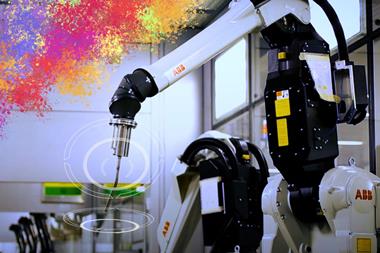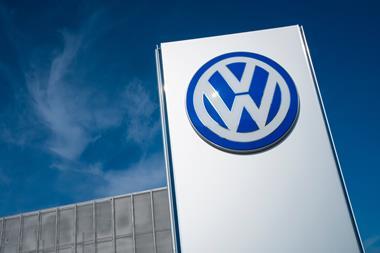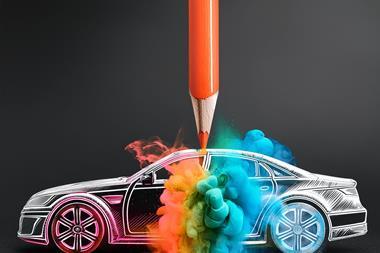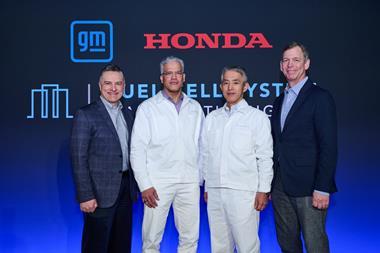Download the complimentary report
Despite a gradual easing of post-Covid supply chain disruptions, automotive manufacturing confronts an array of evolving challenges. From geopolitical tensions such as the Russia-Ukraine and Israel-Hamas wars to the obstacles facing electrification. EV sales are stagnating in some regions while China intensifies its export of affordable EVs, and legacy OEMs are implementing cost-cutting measures to stay competitive. Furthermore, there’s a growing imperative for vehicle manufacturing to reduce its carbon footprint and embrace sustainability, reshaping practices across the supply chain to achieve net zero emissions from raw materials upstream.
In today’s rapidly evolving automotive manufacturing landscape, maintaining a competitive edge is crucial for navigating challenges and seizing growth opportunities, making the insights gleaned from our recent survey paramount.
About the survey
In October 2023, AMS partnered with robotics and automation experts ABB Robotics to conduct a 4-week survey strategically designed to capture automotive manufacturers’ perspectives. With over 370 responses collected, of which more than 60% were from OEMs and Tier suppliers, this survey provides a comprehensive overview of the current state of play in automotive manufacturing, the challenges facing the industry and future opportunities. Additionally, the survey measures the overall market sentiment around vehicle production and sales volumes.
Key survey highlights include:
Manufacturing challenges
The survey reveals a shift in the primary challenges faced by automotive manufacturers. The 2020-2022 Covid pandemic inevitably pushed supply chain disruption to the top of the agenda, with the previous 2022 survey clearly illustrating this, as 67% of respondents voted this as their number one challenge. However for the 2023 survey, supply chain disruption was still a major challenge (with 35% of respondents reporting this), but not quite the dominant issue it previously was, and has been notably overtaken – just – by growing labour & skills shortages according to 36% of respondents.
Future technologies
Notwithstanding the dominance of electrification and immense industry investment into EVs, battery supply chains and charging infrastructure, it was revealing that survey respondents saw the industry’s future powertrain solutions to be more varied, with no clear technological winner.
For passenger vehicles, 25% of respondents highlighted battery electric or hydrogen fuel cell hybrids as the technology which has the potential to make a major contribution, followed closely by hydrogen fuel cell vehicles (23%) and advanced batteries: solid state, lithium-sulphur, lithium air (22%). Notably, hydrogen combustion also received a significant response rate (11%), with a perceptible uptick in interest for this emerging technology.
State of the automotive industry
Despite some concerning economic indicators, the overall automotive industry outlook according to survey respondents was broadly positive. In this 2023 survey, vehicle production and sales outlook are notably more positive than the previous year’s outlook, with 76% believing vehicle production would stay the same or increase, compared to just 56% in 2022. Likewise, in the 2023 survey, 69% believed vehicle sales would stay the same or increase, compared to only 54% in 2022, which is a notably more upbeat outlook.
Of significance was that in terms of vehicle volumes, the main constraint has shifted to demand (55%) in 2023, but in last year’s 2022 survey the main constraint was production (57%). This confirms the earlier findings around supply chain disruption in 2023 easing compared to 2022.
For further details, download the full survey report and gain exclusive insights into:
| Manufacturing challenges |
Robotics and automation |
| Costs |
CASE technologies |
| Manufacturing complexity |
State of the indsutry |
| Future of the industry |
Sustainability and barriers to sustainable manufacturing |
| Supply chain challenges |
Future technologies for passenger and commercial vehicles |
| Skills, training and education and skill shortages |
Consumer constraints to EV growth |
| Electrification and alterative fuels |
Manufacturing barriers to electrification |
Download the full survey report
This survey was compiled in partnership with ABB
ABB is a leading global technology company that energizes the transformation of society and industry to achieve a more productive, sustainable future. By connecting software to its electrification, robotics, automation and motion portfolio, ABB pushes the boundaries of technology to drive performance to new levels. With a history of excellence stretching back more than 130 years, ABB’s success is driven by about 105,000 talented employees in over 100 countries.
Download the survey report below






































